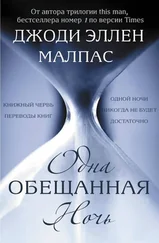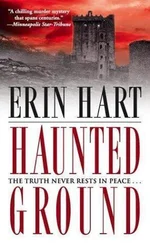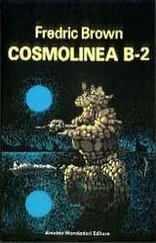Эллен Глазгоу - Barren Ground
Здесь есть возможность читать онлайн «Эллен Глазгоу - Barren Ground» весь текст электронной книги совершенно бесплатно (целиком полную версию без сокращений). В некоторых случаях можно слушать аудио, скачать через торрент в формате fb2 и присутствует краткое содержание. Жанр: Классическая проза, на английском языке. Описание произведения, (предисловие) а так же отзывы посетителей доступны на портале библиотеки ЛибКат.
- Название:Barren Ground
- Автор:
- Жанр:
- Год:неизвестен
- ISBN:нет данных
- Рейтинг книги:3 / 5. Голосов: 1
-
Избранное:Добавить в избранное
- Отзывы:
-
Ваша оценка:
- 60
- 1
- 2
- 3
- 4
- 5
Barren Ground: краткое содержание, описание и аннотация
Предлагаем к чтению аннотацию, описание, краткое содержание или предисловие (зависит от того, что написал сам автор книги «Barren Ground»). Если вы не нашли необходимую информацию о книге — напишите в комментариях, мы постараемся отыскать её.
Barren Ground — читать онлайн бесплатно полную книгу (весь текст) целиком
Ниже представлен текст книги, разбитый по страницам. Система сохранения места последней прочитанной страницы, позволяет с удобством читать онлайн бесплатно книгу «Barren Ground», без необходимости каждый раз заново искать на чём Вы остановились. Поставьте закладку, и сможете в любой момент перейти на страницу, на которой закончили чтение.
Интервал:
Закладка:
They ate to-night, after Joshua had asked grace, in a heavy silence, which was broken only by the gurgling sounds Joshua and Josiah made over their coffee-cups. Mrs. Oakley, who was decently if not delicately bred, had become inured to the depressing tablet manners of her husband and her elder son. After the first disillusionment of her marriage, she had confined her efforts at improvement to the two younger children. They had both, she felt with secret satisfaction, sprung from the finer strain of the Abernethys; it was as if they had inherited from her that rarer intellectual medium in which her forbears had attained their spiritual being. There were hours when it seemed to her that the gulf between the dominant Scotch-Irish stock of the Valley and the mongrel breed of "poor white" which produced Joshua was as wide as the abyss between alien races. Then the image of Joshua as she had first known him would appear to her, and she would think, in the terms of theology which were natural to her mind, "It must have been intended, or it wouldn't have happened."
While the others were still eating, Mrs. Oakley rose from the food she had barely tasted, and began to clear the table. The nervous affection from which she suffered made it impossible for her to sit in one spot for more than a few minutes. Her nerves jerked her up and started her on again independently of her will or even of any physical effort. Only constant movement quieted the twitching which ran like electric wires through her muscles.
"Go and lie down, Ma. I'll clear off and wash up," Dorinda said. Her pity for her mother was stronger to-night than it had ever been, for it had become a part of the craving for happiness which was overflowing her soul. Often this starved craving had made her bitter and self-centred because of the ceaseless gnawing in her breast; but now it was wholly kind and beneficent. "If you would only stop and rest," she added tenderly, "your neuralgia would be better."
"I can't stop," replied Mrs. Oakley, with wintry calm. "I can't see things going to rack and ruin and not try to prevent it." After a minute, still moving about, she continued hopelessly, "It rests me to work."
"I brought the butter for you," returned Dorinda, in hurt tones, "and you didn't even touch it."
Mrs. Oakley shook her head. "I don't mind going without," she responded. "You must keep it for the boys."
It was always like that. The girl had sometimes felt that the greatest cross in her life was her mother's morbid unselfishness. Even her nagging-and she nagged at them continually-was easier to bear.
"I've got the water all ready," Mrs. Oakley said, piling dishes on the tin tray. "I'll get right through the washing up, and then we can have prayers."
Family prayers in the evening provided the solitary emotional outlet in her existence. Only then, while she read aloud one of the more belligerent Psalms, and bent her rheumatic knees to the rag carpet in her "chamber," were the frustrated instincts of her being etherealized into spiritual passion. When the boys rebelled, as they sometimes did, or Dorinda protested that she was "too busy for prayers," Mrs. Oakley contended with the earnestness of a Covenanter: "If it wasn't for the help of my religion, I could never keep going."
Now, having finished their meal in silence, they gathered in the chamber, as the big bedroom was called, and waited for evening prayers. It was the only comfortable room in the house, except the kitchen, and the family life after working hours was lived in front of the big fireplace, in which chips, lightwood knots, and hickory logs were burned from dawn until midnight. Before the flames there was a crooked brass footman, and the big iron kettle it supported kept up an uninterrupted hissing noise. In one corner of the room stood a tall rosewood bookcase, which contained the romantic fiction Dorinda had gleaned from the heavy theological library in the parlour across the hall. Between the front windows, which looked out on a cluster of old lilac bushes, there was the huge walnut bed, with four stout posts and no curtains, and facing it between the windows, in the opposite walls, a small cabinet of lacquer-ware which her great-grandfather had brought from the East. In the morning and afternoon the sunlight fell in splinters over the variegated design of the rag carpet and the patchwork quilt on the bed, and picked out the yellow specks in the engravings of John Knox admonishing Mary Stuart and Martyrs for the Covenant.
"The heavens declare the glory of God; and the firmament sheweth his handywork," read Mrs. Oakley in her high thin voice, with her mystic gaze passing over the open Bible to the whitewashed wall where the shadows of the flames wavered.
Motionless, in her broken splint-seated chair, scarcely daring to breathe, Dorinda felt as if she were floating out of the scene into some world of intenser reality. The faces about her in the shifting firelight were the faces in a dream, and a dream that was without vividness. She saw Joshua bending forward, his pipe fallen from his mouth, his hands clasped between his knees, and his eyes fixed in a pathetic groping stare, as if he were trying to follow the words. The look was familiar to her; she had seen it in the wistful expressions of Rambler and of Dan and Beersheba, the horses; yet it still moved her more deeply than she had ever been moved by anything except the patient look of her father's hands. On opposite sides of the fireplace, Josiah and Rufus were dozing, Josiah sucking his empty pipe as a child sucks a stick of candy, Rufus playing with the knife he had used to whittle a piece of wood. At the first words of the Psalm he had stopped work and closed his eyes, while a pious vacancy washed like a tide over his handsome features. Curled on the rag carpet, Rambler and Flossie watched each other with wary intentness, Rambler contemplative and tolerant, Flossie suspicious and superior. The glow and stillness of the room enclosed the group in a circle that was like the shadow of a magic lantern. The flames whispered; the kettle hummed on the brass foctman; the sound of Joshua's heavy breathing went on like a human undercurrent to the cadences of the Psalm. Outside, in the fields, a dog barked, and Rambler raised his long, serious head from the rug and listened. A log of wood, charred in the middle, broke in two and scattered a shower of sparks.
Prayers were over. Mrs. Oakley rose from her knees; Joshua prodded the ashes in his pipe; Josiah drew a twist of home-cured tobacco from his pocket, and cutting off a chew from the end of it, thrust it into his cheek, where it bulged for the rest of the evening; Rufus picked up a fishing-pole and resumed his whittling. Until bedtime the three men would sprawl there in the agreeable warmth between the fireplace and the lamp on the table. Nobody talked; conversation was as alien to them as music. Drugged with fatigue, they nodded in a vegetable somnolence. Even in their hours of freedom they could not escape the relentless tyranny of the soil.
After putting away the Bible, Mrs. Oakley took out a dozen damask towels, with Turkey-red borders and fringed ends, from her top bureau drawer and began to look over then. These towels were the possession she prized most, after the furniture of her grandfather, and they were never used except when the minister or a visiting elder came to spend the night.
"They're turning a little yellow," she remarked presently, when she had straightened the long fringe and mended a few places. "I reckon I might as well put them in soak to-night."
Rufus yawned and laid down his fishing-rod. "There ain't anything for me to do but go to bed."
"We all might as well go, I reckon," Joshua agreed drowsily. "It's gittin' on past eight o'clock, an' if the snow's off the ground, we've got a hard day ahead of us."
"I'll put these towels in soak first," his wife responded, "and I've got a little ironing I want to get through with before I can rest."
Читать дальшеИнтервал:
Закладка:
Похожие книги на «Barren Ground»
Представляем Вашему вниманию похожие книги на «Barren Ground» списком для выбора. Мы отобрали схожую по названию и смыслу литературу в надежде предоставить читателям больше вариантов отыскать новые, интересные, ещё непрочитанные произведения.
Обсуждение, отзывы о книге «Barren Ground» и просто собственные мнения читателей. Оставьте ваши комментарии, напишите, что Вы думаете о произведении, его смысле или главных героях. Укажите что конкретно понравилось, а что нет, и почему Вы так считаете.










![Эллен Дедженерес - Кроме шуток [Как полюбить себя, продать дуршлаг дорого, прокачать мозг с помощью телешоу и другие истории от Эллен Дедженерес] [litres]](/books/384873/ellen-dedzheneres-krome-shutok-kak-polyubit-sebya-p-thumb.webp)

